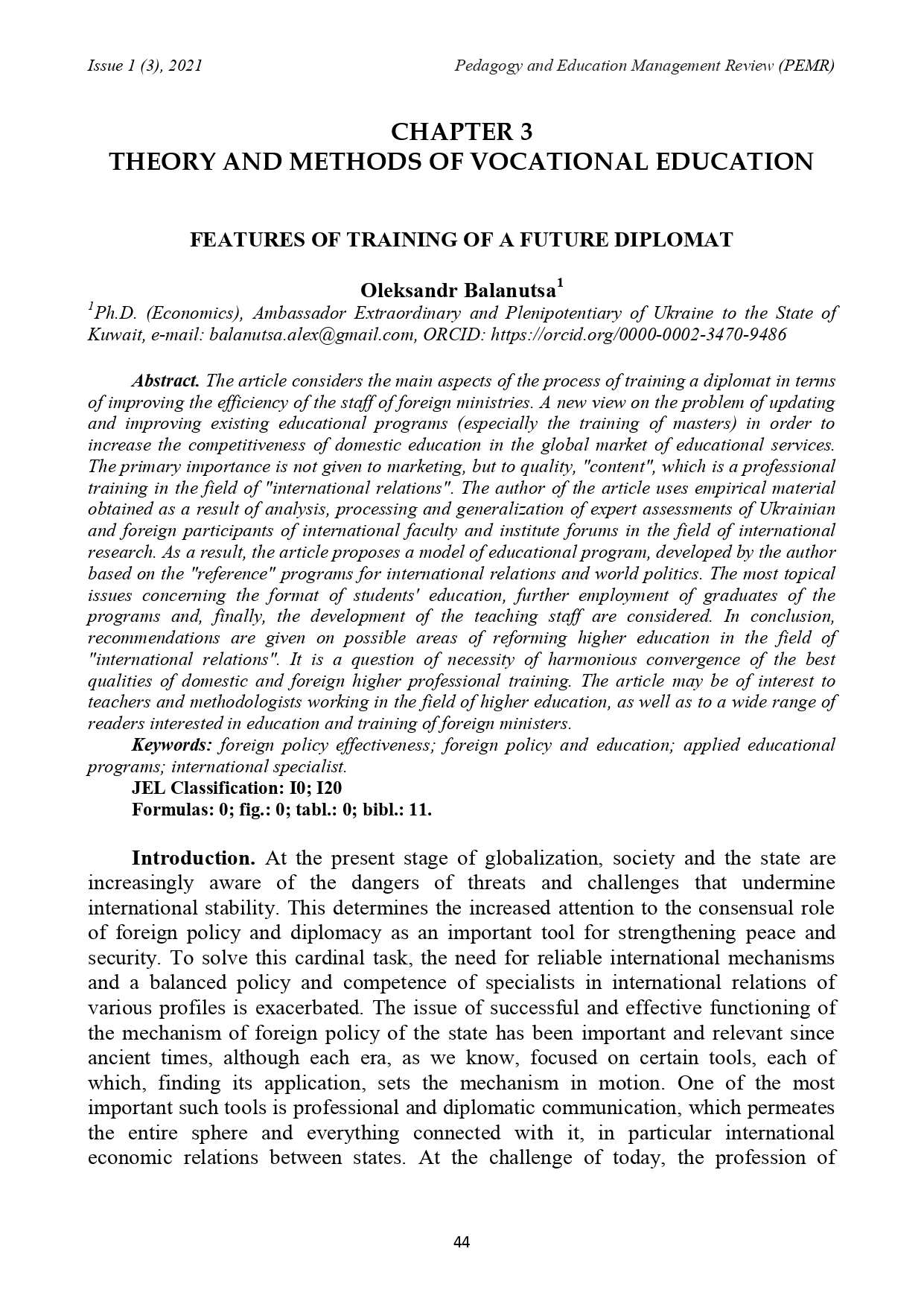FEATURES OF TRAINING OF A FUTURE DIPLOMAT
DOI:
https://doi.org/10.36690/2733-2039-2021-1-44Keywords:
foreign policy effectiveness, foreign policy and education, applied educational programs, international specialistAbstract
The article considers the main aspects of the process of training a diplomat in terms of improving the efficiency of the staff of foreign ministries. A new view on the problem of updating and improving existing educational programs (especially the training of masters) in order to increase the competitiveness of domestic education in the global market of educational services. The primary importance is not given to marketing, but to quality, "content", which is a professional training in the field of "international relations". The author of the article uses empirical material obtained as a result of analysis, processing and generalization of expert assessments of Ukrainian and foreign participants of international faculty and institute forums in the field of international research. As a result, the article proposes a model of educational program, developed by the author based on the "reference" programs for international relations and world politics. The most topical issues concerning the format of students' education, further employment of graduates of the programs and, finally, the development of the teaching staff are considered. In conclusion, recommendations are given on possible areas of reforming higher education in the field of "international relations". It is a question of necessity of harmonious convergence of the best qualities of domestic and foreign higher professional training. The article may be of interest to teachers and methodologists working in the field of higher education, as well as to a wide range of readers interested in education and training of foreign ministers.
Downloads
References
Balanutsa, O. (2020) Cognitive modeling in the management of educational institutions. Pedagogy and Education Management Review. Issue 1. P.28-32
Proekty standartiv vyshchoi osvity [Draft standards of higher education]. (2016). Taken from http://mon.gov.ua/activity/education/ reforma - osviti / naukovo - metodichna - radaministerstva / proekti-standartiv-vishhoyiosviti.html
Raitskaya, L.K. (2013). Optimizacija uchebno-poznavatel'noj dejatel'nosti studentov v internet-srede [Optimization of educational and cognitive activities of students in the Internet environment]. Bulletin of MGIMO-University№ 1. S. 18–21[Russian]
Tsivaty, V.G. (2004). Dyplomatiia i pidhotovka dyplomata XXI stolittia: tradytsii,innovatsii, modeli [ Diplomacy and training of diplomats of the XXI century: traditions , innovations, models]. Scientific herald of the Diplomatic Academy of Ukraine. №. 10 (1). P. 11-31. [Ukraine]






